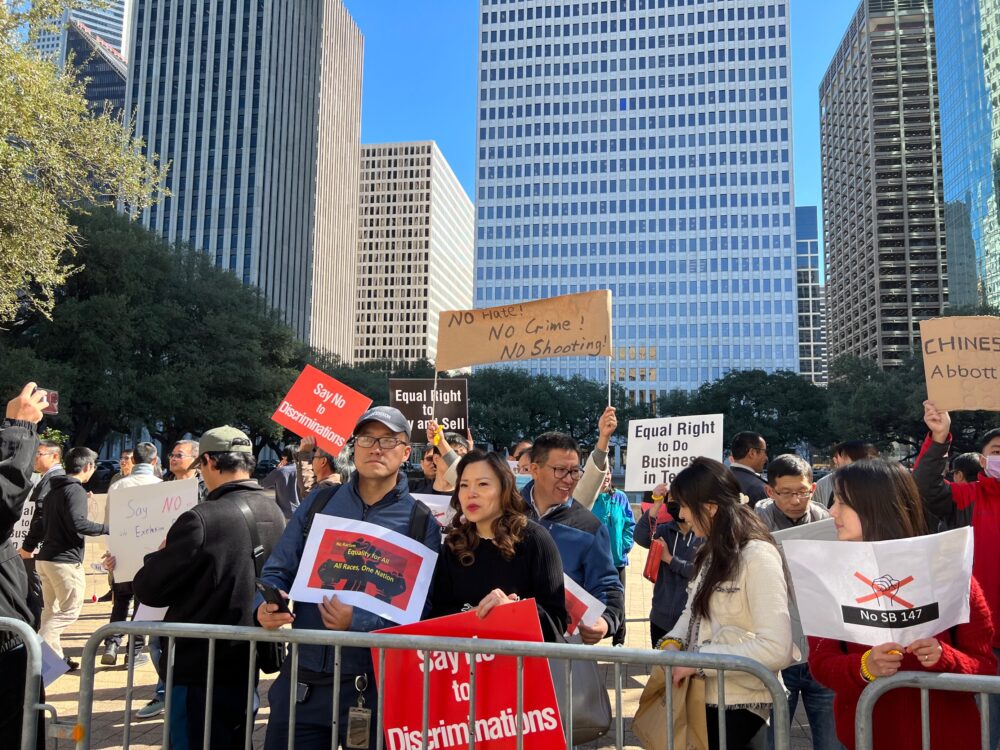A Texas Senate bill that some say discriminates against people from other countries is still alive. Senate Bill 147 was passed out of the Texas Senate Committee on State Affairs last week on an 8-2 vote. The bill was filed by Senator Lois Kolkhorst and would prohibit the sale of Texas land to citizens and businesses with connections to China, Iran, North Korea, and Russia.
The bill has drawn numerous protests and some have argued that it targets asylum seekers and people who hold green cards.
"I think it was deeply disappointing to see the bill pass out of the Senate Committee despite not having corrected the problems that we pointed out to the bill's author," said State Representative Gene Wu, who also represents Southwest Houston. "Despite commitments from many members to not vote for it – the bill still moved forward."
Wu immigrated from China as a child and has been very vocal about opposing the bill. He said the legislation is personal to him and his family.
"[If] my family had been going through our naturalization process during this time period, we might not have been able to buy a home," he said. "[The] childhood home I grew up in, would've been out of reach."
Wu said over 120 Asian-Americans traveled across the State of Texas to Austin to testify against the bill which caught the attention of Senator Kolkhorst. The bill has since been updated to allow individuals who are U.S. citizens and green card holders to purchase homes in Texas.
A previous statement from Kolkhorst said the bill was put in place to protect Texas land against foreign government ownership.
Wu said although changes were made it still discriminates.
"Some of the changes made were better...but it still affects a large population," he said. "Our objection is not the effort to defend national security, but the objection is you cannot label an entire population as suspect as traitors to this country without showing some proof." Wu said the bill is unfairly targeting certain communities. "You can't just say because of where you're from, we're going to restrict your right."
Deborah Chen is the Civic Engagement Program Director for OCA-Greater Houston, a social justice and civil advocacy organization. She said the bill passing is very concerning.
"It's really disappointing," she said. "It passed out of committee, it wasn't changed, it was pretty much the original racist wording; it unnecessarily creates fear and targets individuals in the state.”
Chen's organization has played a helping hand in organizing many rallies, protests, and town halls in Houston to make people aware of SB 147. She said there was a huge turnout with hundreds of people showing up to Austin to testify, and she even brought over 150 statements from individuals who were not able to make it in person.
"There were so many people there," she said. "I didn't get a chance to testify because I think they saw so many people there, so they shut off the machines and no one could sign up anymore."
Chen said she hopes when the bill makes it to the House, members will choose to not move the bill forward because people her organization has spoken with are very angry and concerned about the impact of the bill.
Senate Bill 147 will now move to the Senate floor for a vote.

 78 °F
78 °F
